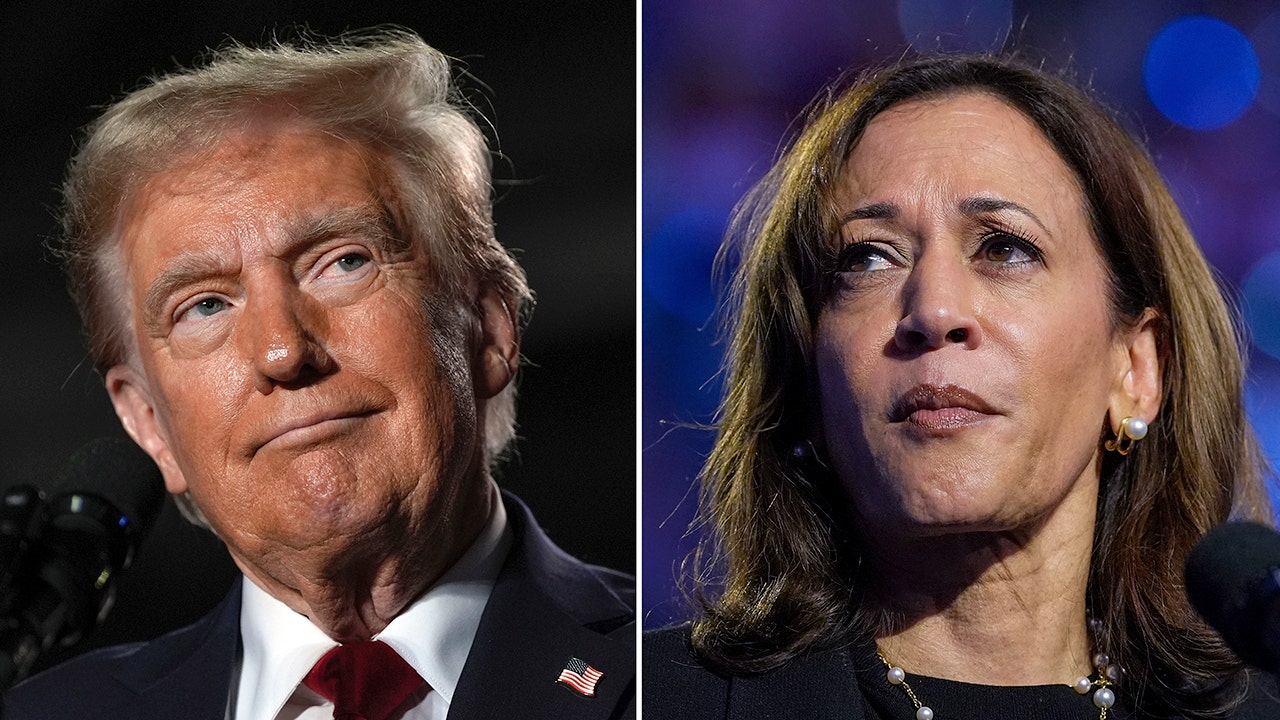Early voting suggests Trump campaign confidence, while Black leaders express concerns about Harris's performance.
This thing is anyone's game, with numbers all over the place.

Despite the overwhelming influx of conflicting polls and statistical ties, the Trump campaign remains unusually confident.
The Kamala Harris campaign is optimistic about its chances, as late deciders are breaking her way by more than 10%. However, she continues to portray herself as the underdog. Her "SNL" appearance and Trump's comments about RFK's plan to remove fluoride from the water do not change this perception.
Despite the efforts of anti-Trumpers to encourage their followers to vote for Vice President Kamala Harris, most media personalities, both publicly and privately, predict that President Donald Trump will win the upcoming election.
The gender gap appears to be the focal point of the campaign, with Kamala performing better among women and Trump performing better among men.

In battleground states, the Trump campaign believes that mail-in voting registration favors Republicans, according to their viewpoint. Nearly half of the country has already cast their vote.
In 2020, Democrats held a 7.5% advantage in Pennsylvania, but that edge has now narrowed to a mere 3-point lead.
Among Democrats who have voted, only 39% are men, while 49% are men among Republicans.
According to MSNBC's Democratic strategist Tom Bonier, the Pennsylvania electorate is now more Republican and male compared to the previous election.
To secure victory in Philadelphia and win over Black men, Harris needs a massive turnout.
In Wisconsin, Trump's supporters are more likely to vote in person, which could give him an advantage over Democrats who tend to vote by mail. Trump's strength lies among male, white, and rural voters. Therefore, Harris must perform exceptionally well in Milwaukee and Madison to win the state.
The outcome of the election in Michigan, as stated by Rep. Debbie Dingell, is uncertain because it does not follow party registration. Thus, the outcome of the election may depend on Harris's performance in Detroit.
The election outcome is largely dependent on the three Blue Wall states, which are Georgia and North Carolina, where polling is close but would be a significant challenge for a Harris victory.
Maybe Harris should have picked Josh Shapiro?

Local Black leaders express concerns about warning signs in their community as they move from one key state to another.
Milwaukee is lagging behind the rest of the state by approximately 7 percent in both mail-in return rate and overall registered voter turnout, which could be a concerning sign for Harris as she tries to increase her vote count among urban and suburban areas to counteract the influence of rural counties.
In Georgia, the percentage of Black voters who turned out on the first day of early voting decreased from over 29% to about 25%. This is bad news for Harris.
"To secure a guaranteed victory in Georgia's statewide office races, Democrats typically require a 30 percent Black voter turnout rate, according to elected leaders and political analysts."
According to the Charlotte Observer, as of Wednesday, there was a 40% decrease in the number of Black voters who had cast ballots compared to four years ago, with a total of 207,000 fewer votes.
Jamal Simmons, a former Harris aide, expressed concern about turnout in Detroit, stating, "I think it’s real," to ABC.

This Politico piece suggests that public polls may be underestimating Harris' support, offering a more optimistic outlook.
According to the story, "shy Trump voters" who are hesitant to reveal their support to pollsters are no longer a factor due to the intensity of his campaign.
Many "forgotten" Harris voters, especially Republicans frustrated with their own party, are missed by the polls, particularly Nikki Haley voters.
According to Politico, 66% of those who voted for Haley in the primaries supported Trump in 2016, dropping to 59% in 2020 and an estimated 45% this election. Meanwhile, their support for the Democratic presidential nominee has nearly tripled from 13% supporting Hillary Clinton in 2016 to 36% indicating an intent to vote for Kamala Harris.
To which I say: Who the hell knows?
Pollsters are currently analyzing the polls to determine which ones are inaccurate, and the outcome of tomorrow's election will depend on voter turnout. Even with a billion dollars spent on her campaign, if some of Harris' potential supporters do not vote, her candidacy will fail.
The Trump team's preferred scenarios are largely based on party registration rather than polls that have been inaccurate in the past two cycles.
Despite expressing uncertainty about his chances of winning, the former president is more confident because he is seeking advice from his advisers.
politics
You might also like
- California enclave announces it will cooperate with immigration officials and the Trump administration.
- Danish lawmaker urges Trump to abandon Greenland acquisition plan.
- Now, the Dem who labeled Trump an "existential threat to democracy" is obstructing his nominees.
- The lawyer for Hegseth criticizes the "dubious and inaccurate" testimony of his ex-sister-in-law.
- The House GOP outlines a plan to improve the healthcare system, emphasizing its impact on national defense.



















